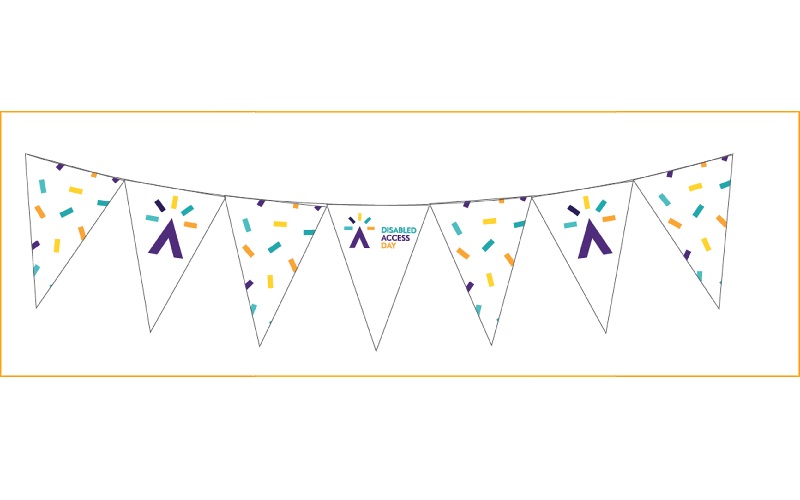Many organisations and venues are hosting ‘Disabled Access Day’ on Saturday 10th March, following on from the organised events in 2015-2017.
If you’ve not come across Disabled Access Day before, here’s what the organisers say about it: “In 2015 Disabled Access Day began as a day to celebrate good access and created opportunities for people to try something new.
The day was about highlighting the fantastic access that already exists in places, such as touch tours, relaxed performances, sensory experiences, level access and of course a warm welcome!”
There isn’t an ‘official’ Disabled Access Day in 2018, with it returning in 2019, and that perhaps highlights the issue here… why does this have to be a ‘once a year’, or even less, event?
Surely, we should be making every day ‘disabled access day’?
Making this an annual event risks giving organisations, venues and other providers an excuse for treating this as a once-a-year experience for them too…
“We’ve taken part in disabled access day, put some effort in on that one day, we can tick the box and get back to normal”.
While many are great at this throughout the year, there are many who aren’t, providing the most basic of support for people with disabilities, if even that.
This can range from the everyday problems of everyone unchallenged helping themselves to disabled parking spaces at the supermarket because “I’ll only be a minute”, or “I don’t want to park in a normal space in case my car gets damaged”, through to disabled people having to lie on the floor in public toilets to change because there are so few properly equipped disabled changing places.
Then, even further through to the language used by organisations who still deem it acceptable to talk about people being “crippled by debt”, or “blinded by science”.
Another issue with the way some organisations engage with Disabled Access Day is that it can tend to focus on just some areas of disability, often being about physical access, whereas the diversity of disability requires a much broader response.
What about people with ‘hidden’ disabilities such as ADHD, or Dyslexia?
What about people with neurodiversity such as Autistic people?
Is everyone considered, can everyone be considered, when an organisation is focusing on how to showcase access on just one day?
While day events like ‘Disabled Access Day’, or even longer campaigns like the excellent ‘#LooAdvent’ campaign before Christmas, can have a positive impact, we need to see a joined-up approach to enable disability equality to be seen as just as valid and important a cause as gender equality, racial equality, LGBTQ+ equality and other more high-profile campaigns that seem to get more publicity.
Where is the #MeToo or #TimesUp campaign for disability equality?
Disability equality seems to be the poorer cousin of its more high-profile family members, with few celebrities mentioning it during Oscar acceptance speeches…
This lower and often uncoordinated profile for disability equality can create real world difficulties for people with disabilities, their families and carers, etc.
If there isn’t a loud campaigning voice for them, it allows Government policy to pass them over, or worse to target them for benefit cuts and radical changes to disability, benefit, and employment legislation.
Imagine if the Government proposed to actively penalise women, or ethnic minorities, or the LGBTQ+ community… if members of these demographic groups were committing suicide because of the pressures being put on them by changes in Government policy (as has happened in the disabled community).
The outrage that would spew forth, the marches on Parliament, the ‘A’ list celebrities that would be queueing up to make statements of support…
So, let’s cheer on those who are independently putting something on for the unofficial ‘disabled access day’ this Saturday, and those who run longer time-limited campaigns.
However, let’s also look at how we can join together to help create a culture where this isn’t necessary any more…
A culture where anyone, of any ability, can access whatever anyone else can all the time; a culture where just as racist, homophobic or sexually discriminatory language is unacceptable, where we no longer make comments that use a disability in order to create a point.
A culture where everyone is accepted for who they are, for what they bring and contribute, and all are treated equally at every level.
It’s not time for ‘Disabled Access Day’, it’s time for ‘Disabled Access Everyday’ #DisabledAccessEveryday #DAE
Image rights: © 2016 Disabled Access Day
